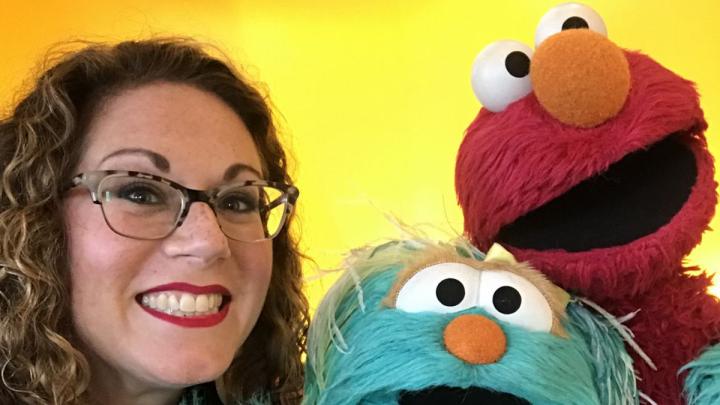
Cara Rager ‘09W (MS) had wanted to be a second-grade reading teacher since second grade. But before landing a classroom teaching job, and feeling “exhausted and frustrated” watching peers with years of experience struggle with getting laid off and finding full-time positions over a decade ago, she figured there must be some other way to use her graduate degree.
“It felt scary because that wasn't my plan,” she says. “But someone at [the Warner School] once said, ‘If you’re not being challenged and you don’t feel this tinge of discomfort on a regular basis, then you're not growing.' I kept hearing those words in the back of my head.”
While at Warner, to gain educational experiences from as many places as she could, Rager juggled multiple jobs. She was a substitute teacher at four local school districts, a tutor for elementary and middle school students, a teaching assistant for the neighborhood-based nonprofit Community Place of Greater Rochester, and a nanny.
Months after graduating she became the education training coordinator at WXXI Public Media in Rochester, where she continues to work today. Over the years, however, her role has grown. Rager, who was WXXI’s Employee of the Year in 2018, now oversees family engagement efforts, educator professional development opportunities, and formal and informal educational engagement experiences.
“I’m teaching in my current role, it just doesn't look the same as it would in a classroom,” she says. “My work is guided by the station’s educational mission and community needs, and I get to work with an awesome team of colleagues both internally and externally in the community.”
Rager heads the WXXI Media Literacy Academy, a support, training and certification program for P-12 educators in the Greater Rochester/Finger Lakes region. On its second cohort, the academy helps educators learn to make media literacy—used to discern whether information is accurate or skewed, or whether media is being used in productive ways, for example—more intentional, upfront, and specific.
“This project is a little more in-your-face in that we’re putting media literacy habits at the top of the agenda as opposed to weaving it in,” explains Rager, who is working toward her media literacy certification as well. “But it's not something we check off and are done with. It's something we have to constantly work on and adapt as we learn.”
Embracing flexibility is essential when striving to do important work in informal ways.
My philosophy of education is that it doesn't have to be done within four walls of a classroom,” Rager says. “School buildings are really important, but if we only put value on that institution, we're forgetting about all these amazing learning experiences that children and families can have before they get to those four walls.”
Collaborating with others who feel equally passionate is how Rager says necessary work gets done. Too many folks, she believes, are working at the same issues but not together. In addition to schools, she partners with libraries, after-school spaces, recreation centers, science centers, and out-of-school learning programs.
“If we broaden our idea of what a classroom is and who educators can be, we have a more rich version of the spaces our kids have access to,” she says. “This helps me form my own bigger sense of purpose when it comes to supporting learning.”
That sense of purpose involves championing social justice. Once aware, through her experiences in various settings, of the privileges in education she has been afforded, Rager became motivated to help create more equitable opportunities for all students, particularly those in high-need areas.
No matter who she's working with — children or adults — Rager allows for “a layer of transparency and authenticity.” She emphasizes that she's learning alongside them, and that mistakes are part of the process.
One of her biggest collaborative partners is the Monroe County Library System, which she worked with this summer to host a series called “Pop Up in a Park.” Families were given nature notebooks, magnifiers, and other materials to learn about ways to explore in green spaces and safely spend time together.
Rager makes it clear time and again that she's not afraid to try new ways of engaging the community.
“We have to break down this one view of teaching,” she says. “It's not easy. A lot of folks don't always get supported when they ‘leave' the traditional teaching profession. But if we take that stigma away will see more people who have done it and are thriving.”